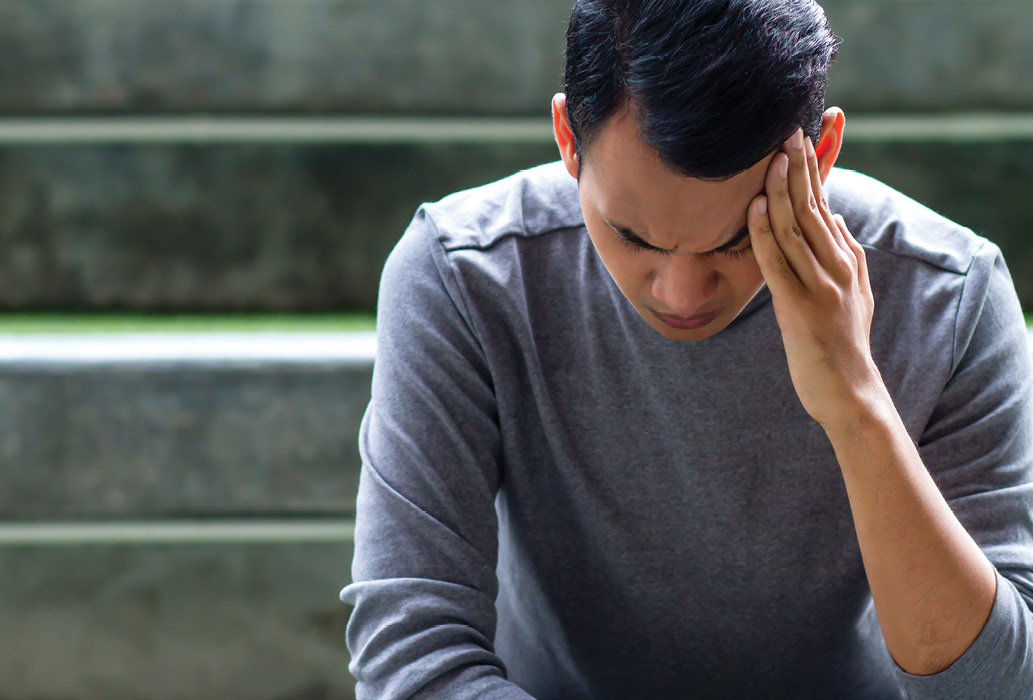We have to take a serious relook at the state of mind of Malaysians

BY ADI SATRIA
As the nation reels itself out from the Covid -19 pandemic phase to an endemic, we need to relook at its impact on the population’s mental health over the last three years.
A technical report released by the Ministry of Health (MoH) in 2017 showed that 29.2 per cent of adults aged 16 and above, or one in three adults and 12.1 per cent of children in Malaysia, were experiencing mental health problems. This means that after heart disease, this is the second largest health problem plaguing Malaysians.
Another report from the National Health and Morbidity Study (NHMS) conducted in 2019 showed that about half a million of our country’s population experienced depression. Since then, these figures would have increased to even worse levels since the outbreak of Covid-19 in early 2020.
While millions of ringgit were spent tackling physical health issues, not much seriousness is given to mental health. It is a topic most people seek to avoid.
Due to the low level of education and awareness, our society tends to have negative perceptions and stereotypes towards those with mental health issues, so they are ashamed and thus reluctant to seek mental health advice from professionals.
It is not wrong to say that most Malaysians turn to religion to find solace in trying to solve their mental issues, which range from depression, sadness due to certain life tragedies, relationship issues with family and friends, education issues such as failure in academic studies, anxieties, feelings of insecurity as well as problems with anger management and so on.
Religion may provide some degree of solace with a certain degree of faith that a divine power may help. Still, it can also be a form of escapism as the real cause of the problem has not been identified and hence the solution will not be forthcoming. This inability to solve a problem that may be simple to address, may lead one to a false sense of accomplishment which may recur in the future to an even worse degree.
Need for more mental health professionals
Police recorded 468 suicides in the first five months of 2021, climbing from an annual 631 in 2020 and 609 in 2019. At least two suicide deaths occurred daily on average from 2019 to May 2020, according to a statement by ABIM released amid the coronavirus pandemic. This was further confirmed by the Bukit Aman CID Division, which stated that from 2019 to May 2021, at least 281 men and 1,427 women committed suicide, with 872 of them between 15 and 18 years old.
These statistics, which show higher tendencies among the young, are quite alarming. The police noted that the three main reasons for suicides include troubled family relationships, emotional pressure and financial constraints.
A typical example of a young student having family relationship problems is when parents practise “conditional love” where the child is only loved if they live up to specific conditions. This parenting style is the top reason for damaging the child’s mental health.
It happens when the parent expects the child to do well in a certain subject in school so that the child can realise their (usually the parent’s) ambition to be someone they are not inclined to be – a doctor, lawyer and so on.
 This can also lead to self-harm, drugs and alcohol abuse and others. This anxiety, stress and depression can lead to binge eating, bulimia and other eating disorders. The problem of children and young adults being overweight is also made worse due to the consumption of fast foods.
This can also lead to self-harm, drugs and alcohol abuse and others. This anxiety, stress and depression can lead to binge eating, bulimia and other eating disorders. The problem of children and young adults being overweight is also made worse due to the consumption of fast foods.
Among the more affluent parents in urban areas, mental health professionals can be available to assess the child and provide the proper diagnosis and treatment through counselling sessions. However, among the B40s and also in areas outside the major cities of Kuala Lumpur, Penang and Johor Baru, these professionals are scarce.
Health education must begin in schools
In essence the issue of mental health in Malaysia is a time bomb waiting to explode. While mental health has been a pervasive long-standing public health issue, the MoH recognises that NGOs have been steadfast partners of the Ministry since the 1970s providing mental health and psychosocial support services.
Good mental health is every individual’s right. And a country’s progress very much depends on the mental health of its people. It is time to take this issue seriously and institute specific measures.
It should start with the education system to attract students in psychiatry, clinical psychology and counselling in all higher education institutes, which will produce more graduates in the mental health field.
More mental health specialists in government hospitals and clinics should be encouraged to stay on with better financial benefits to avoid moving to the private sector. This is to fulfill the needs of the B40 group and to fulfill the need for every local health clinic in every town to have at least one psychiatrist. The need to tackle the mental health problems within this lower-income group must be seriously recognised and addressed urgently.
While I have heard mental health issues being discussed over at least one major commercial radio station, there must be a major media campaign to change people’s negative perceptions and stereotyping towards mental health diseases. In developed countries, paying a psychiatrist for counselling is a normal and even prestigious thing to do.
And health education must begin in schools to cover not just proper physical health and proper nutritional practice, but also to inculcate the importance of mental healthcare among students and youth for the welfare and progress of society.
Social media also has one major problem – cyberbullying. As more young people take to social media, their relationship with the real world becomes secondary and may lead to further issues, including suicide. Parliament has just passed a Bill to decriminalise attempted suicide which is another positive step to recognise the cause and work towards tackling the issues and providing a solution. – The Health
ADI SATRIA, a veteran in the marketing communications industry, understands
human behaviour as it is a basic requirement in his professional work in changing consumer mindsets. It is time to take more serious steps to address the growing suicide tendency in the country.








